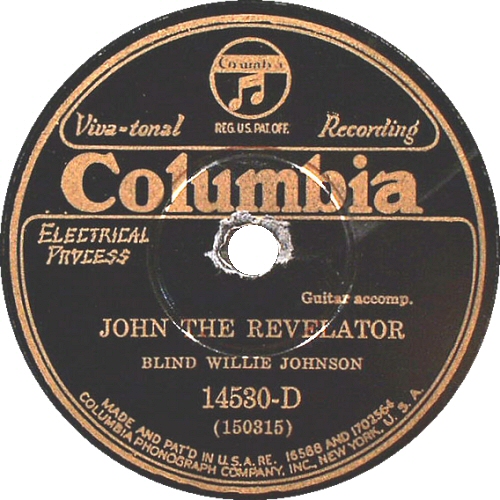 |
|
Continue reading November 3: Bob Dylan released Good As I Been To You in 1992
 |
|
Continue reading November 3: Bob Dylan released Good As I Been To You in 1992

Nick Cave is a big favorite of ours here at alldylan, he gave us a very special concert at Bergenfest last year, and he’s clearly a Bob Dylan fan.
Today it’s his birthday, and we celebrate by looking at his interpretation of Dylan’s songs. We found three different tunes, if there are more, please tell us in the comment section.
Let us start.
Nick Cave talks about the song he wished he had written, I threw it all away:
I’ve always had an obligation to creation, above all.
~Nick CavePeople think I’m a miserable sod but it’s only because I get asked such bloody miserable questions.
~Nick CaveEverything’s dissolving, babe, according to plan
The sky is on fire, the dead are heaped across the land
I went to bed last night and my
moral code got jammed
I woke up this morning with a Frappucino in my hand
~Nick Cave (Abattoir Blues)
Get ready for Love:

“And he said, Who art thou, Lord? And the Lord said, I am Jesus whom thou persecutest: it is hard for thee to kick against the pricks”
– Acts 9:5
Kicking Against the Pricks is the third album released by Nick Cave and the Bad Seeds. First released in 1986, the album is a collection of cover versions. Like many of our favorite artists (Dylan, Springsteen), Nick Cave dove into “the great songbook from the past” and gave us an album that really stood out in 1986. It wasn’t country, and it most certainly did not fit that new-wave look of Nick Cave and The Bad Seed. They play the songs in a straightforward way, not trying to modernize or make them more rock’n roll. This album was very important in my journey back to traditional folk music and blues standards.
It still stands up very well, and is one of my favorite Nick Cave and The Bad Seeds albums.
The Singer (made famous by Johnny Cash):
Continue reading August 18: Nick Cave and The Bad Seeds released Kicking Against The Pricks in 1986

The Revelation of Jesus Christ, which God gave unto him, to shew unto his servants things which must shortly come to pass; and he sent and signified it by his angel unto his servant John: Who bare record of the word of God, and of the testimony of Jesus Christ, and of all things that he saw. Blessed is he that readeth, and they that hear the words of this prophecy, and keep those things which are written therein: for the time is at hand.
– Revelation 1:1-3
John the Revelator is a traditional gospel blues call and response song. Music critic Thomas Ward describes it as “one of the most powerful songs in all of pre-war acoustic music … [which] has been hugely influential to blues performers”. Blind Willie Johnson recorded John the Revelator in 1929 (or 1930) and is the first known recording (at least to me) and subsequently a variety of artists have recorded their renditions of the song, often with variations in the verses and music.
The song’s title refers to John of Patmos (or traditionally John the Apostle) in his role as the author of the Book of Revelation. A portion of that book focuses on the opening of seven seals and the resulting apocalyptic events. In its various versions, the song quotes several passages from the Bible in the tradition of American spirituals.
This is a dark and brooding masterpiece!
Blind Willie Johnson recorded the song on April 20, 1929 (or 1930) in Atlanta (his second (1929) or his fifth and final recording session for Columbia Records (1930)). He is accompanied by his first wife (probably), Willie B. Harris. Johnson was a gospel blues singer and guitarist. While the lyrics of his songs were usually religious, his music drew from both sacred and blues traditions. It is characterized by his slide guitar accompaniment and tenor voice, and his frequent use of a lower-register ‘growl’ or false bass voice.
Blind Willie Johnson – John The Revelator: